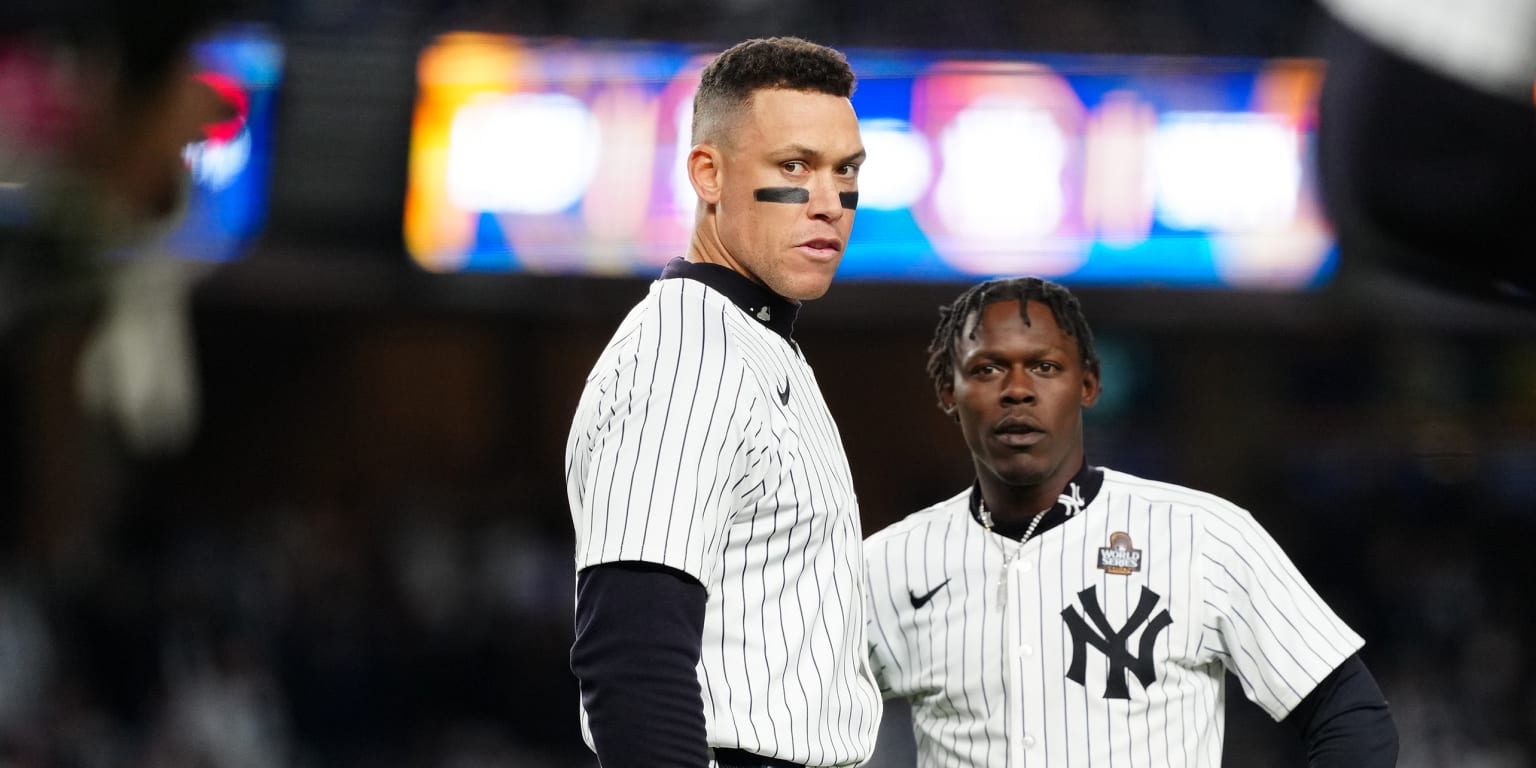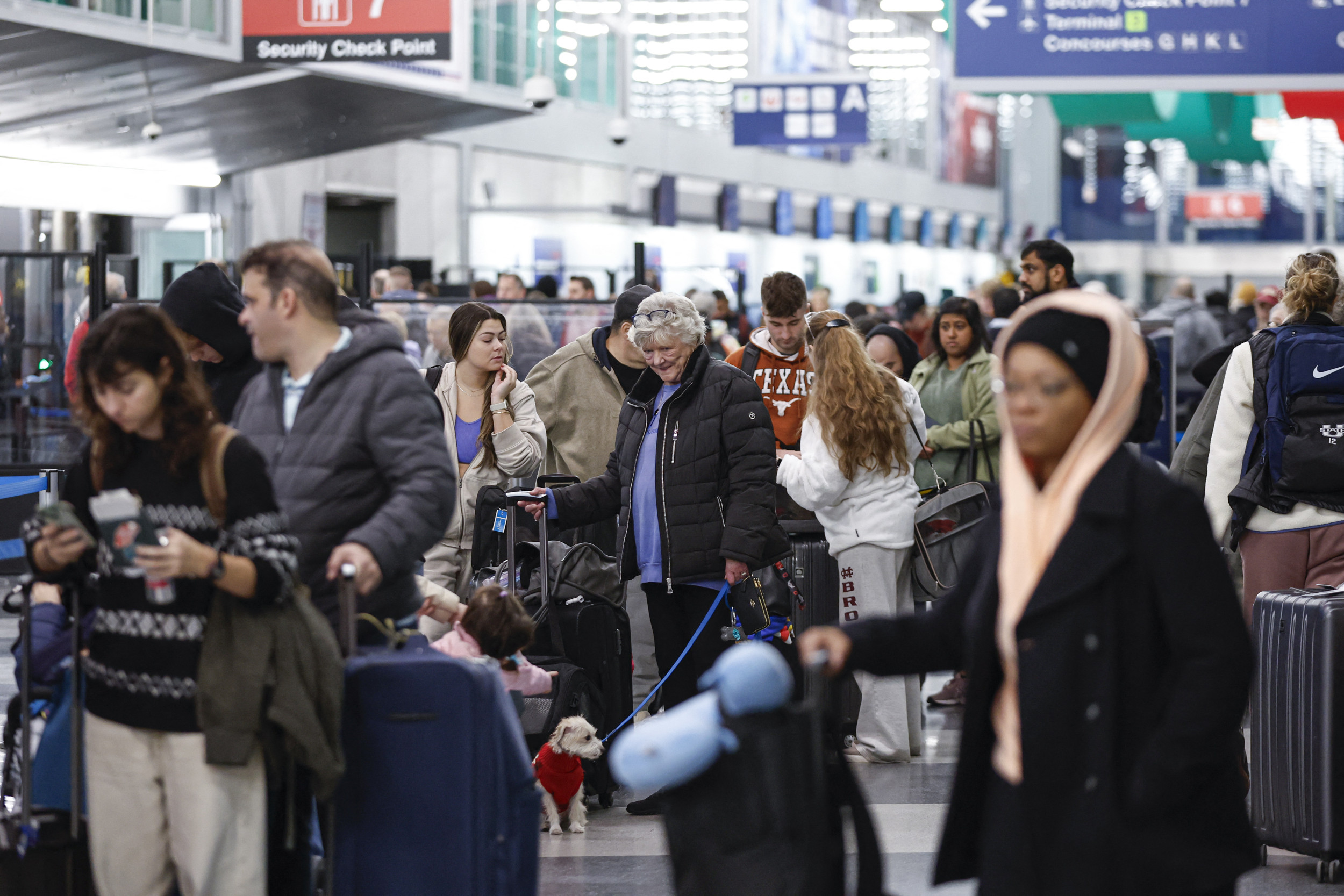World
Bronx ovation unable to jump-start Judge’s bat: Inside the numbers

NEW YORK — For all the attention that has been directed at Aaron Judge’s conspicuously absent production this postseason, the increasingly harsh spotlight on the Yankees captain was certainly not reflected in the reception given to him by a packed Yankee Stadium crowd before Game 3 of the World Series on Monday night.
The Bronx faithful seemed to know that just about any path for the Yankees to fight their way back from what’s now a daunting 3-0 deficit in this Series has to go through No. 99, and the loudest roars of the night and spirited chants of “M-V-P” thundered as he stepped to the plate, as though urging Judge to remember his true identity.
Once again, he did not — and following another quiet night from Judge and the Yankees’ offense in a 4-2 defeat to the Dodgers, they are on the cusp of the end to their season, with the face of the franchise acknowledging that he has been letting teammates down.
“Yeah, definitely,” Judge said. “You want to be getting the hits. You want to be going out there, doing your job. I’m not doing my job right now. I’ve got to pick it up.”
An 0-for-3 performance with a walk left Judge without a multihit performance in 12 games this October — and this is coming off a monstrous regular season during which he hit .322/.457/.701 with 58 homers.
In contrast, Judge is now 6-for-43 (.140) this postseason, with 20 strikeouts and two double-play grounders in 54 plate appearances. In 56 career playoff games, he’s now hitting .196/.302/.430 for a .732 OPS. Judge and Reggie Sanders remain the only hitters in AL/NL history to hit under .200 in more than 200 postseason at-bats.
And the four plate appearances on Monday were a microcosm of his struggles.
Plate appearance 1: Strikeout swinging
The takeaway: He’s expanding, then struggling with two strikes.
Amid Judge’s talk of needing to be more disciplined with his strike zone, it’s worth noting that his approach isn’t fully broken. He swung at pitches one, four and six this at-bat — the fastballs — and took the three breaking balls. Pitch type recognition-wise, that is what he wants.
An early count monster during the regular season, these deep counts to Judge have exposed the natural swing-and-miss in his game in a big way, and while he was fairly good at protecting the plate with two strikes during the regular season (28.3% whiff rate), that has ballooned to a full 45% whiff rate with two strikes in the postseason.
But Judge is getting to two strikes because, as he’s pointed out, he’s just swinging more, and he’s expanding to get there (see: pitch four). A chase rate that was a fantastic 18.7% during the regular season is way up to 28.7% in the playoffs, and up to 34.8% in the World Series.
“At times, you want to make things happen instead of letting the game come to you,” Judge said.
Here’s the thing, though: When it comes to two strikes, it’s not the pitches out of the zone that have been the most concerning issue (though it was in this case). Here’s what his strikeout pitches have looked like this postseason:
Which leads us to our next point…
Plate appearance 2: Flyout to left
The takeaway: Non-fastballs have been a massive weakness.
Notice all of the strikeout pitches in the zone from earlier? Look at all of that swing-and-miss on offspeed stuff in hittable spots for a guy who did plenty of damage on non-fastballs during the regular season.
That brings us to his second plate appearance.
Walker Buehler left a first-pitch curveball about as middle-middle as it can get. Instead of mashing it to Yonkers, Judge lifted a lazy flyout to left.
“If you get that one out of the park, things change,” Judge said.
That illustrates the crux of the issue: Offspeed and breaking pitches have been a disaster for Judge this postseason. He whiffed at 41.4% of them in the regular season; that’s up to a whopping 60.7% whiff rate in the playoffs, including a 10% bump in missing offspeed pitches in the strike zone (as evidenced by that strikeout chart).
And when he does make contact, the contact has been bad: Of the 55 such pitches he’s put in play this October, only one has been a hit — an infield single.
This makes sense — offspeed pitches are better in the playoffs, because the best pitchers from the best teams are pitching all the time. But the league-wide whiff rate on non-fastballs jumped from only 32.3% in the regular season to 36.2% in the postseason — as contrasted with Judge’s leap.
Plate appearance 3: Forceout
The takeaway: He’s not hitting the fastballs, either.
About that “better pitching” thing — the guys facing Judge this postseason have executed, for the most part, and that’s what we saw in this plate appearance, where Brusdar Graterol got a sinker in on Judge’s hands to force a chopper back to the mound.
Look at how Judge did against fastballs in the regular season, and there is room to attack him in there:
If you’re going to throw Judge a fastball, try not to leave it down or in. Pitchers have executed that for the most part, and even when Judge does get the increasingly rare fastball, he’s just not doing damage. Of his 61 swings on fastballs in the zone this postseason … five have turned into hits.
Graterol attacked him up and in — and was rewarded for it.
Plate appearance 4: Walk
The takeaway: Patience is key… but is it too little, too late?
Judge did reach base in this final plate appearance, successfully laying off three consecutive sliders off the plate (pitches four, five and six) — but that pushes the onus on to his teammates, of which Juan Soto and Giancarlo Stanton have been the only meaningful power players this offseason.
“You want to try to make something happen, but if you’re not going to get a pitch in the zone, you’ve got to just take your walks and set up for [Stanton],” Judge said.
Judge has pointed to his plate discipline and not necessarily mechanical reasons for his malaise, and there will be plenty of time to dissect the “why” in due time, but here’s the thing: Can the Yankees mount a comeback if a more patient Judge works more walks?
“I didn’t get any hits. Didn’t drive anybody in,” Judge said of his Game 3.
Patience might not help much with those things, especially if the Dodgers are simply willing to let Judge take his walks.








